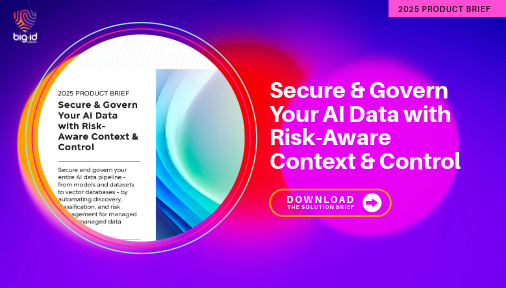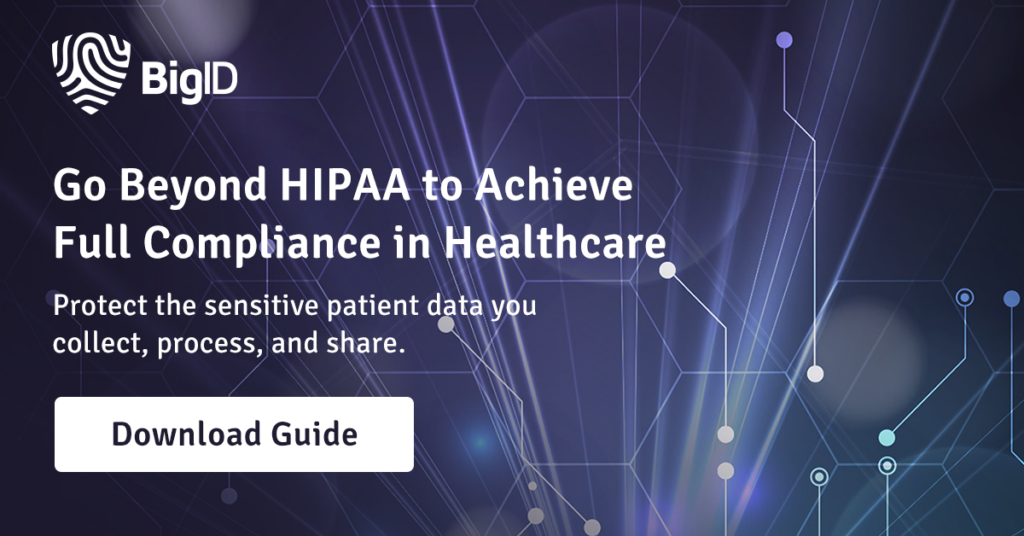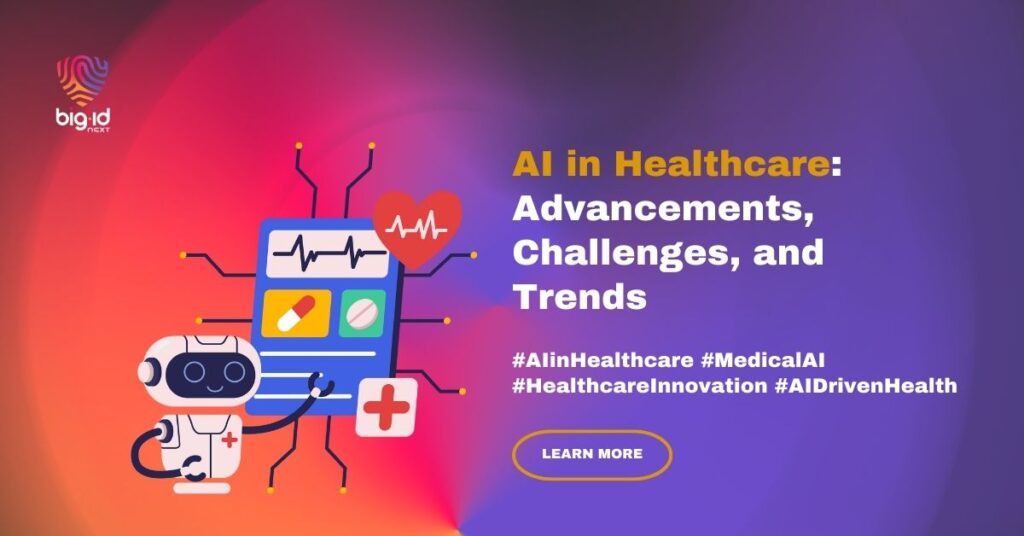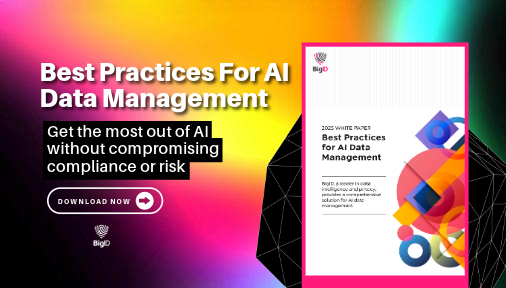IA en la atención médica: transformando la medicina y abordando los desafíos de privacidad, seguridad y ética.
Inteligencia artificial (IA) está transformando la industria de la salud, mejorando el diagnóstico, la personalización del tratamiento y la eficiencia administrativa. Sin embargo, IA en la atención sanitaria También plantea importantes preocupaciones sobre la privacidad, la seguridad y la gobernanza de los datos. A medida que crece la adopción de la IA, las organizaciones deben abordar las complejidades del cumplimiento normativo, los riesgos de ciberseguridad y las consideraciones éticas para maximizar sus beneficios y, al mismo tiempo, proteger los datos de los pacientes.
Se proyecta que para 2030, la IA en el sector sanitario alcanzará los 187 mil millones de T/T.
¿Qué es la Inteligencia Artificial en la Salud?
La IA se refiere al uso de aprendizaje automático, procesamiento del lenguaje natural (PLN) y algoritmos de aprendizaje profundo para analizar datos, identificar patrones y tomar decisiones informadas. En el ámbito sanitario, la IA se utiliza para el análisis de imágenes médicas, el descubrimiento de fármacos, la cirugía robótica y el análisis predictivo, lo que ayuda a los profesionales sanitarios a mejorar la atención al paciente y la eficiencia operativa.
Aplicaciones de IA en la industria médica
La integración de la IA en la atención sanitaria ha dado lugar a avances significativos:
- Precisión diagnóstica: Los algoritmos de IA analizan imágenes y datos médicos para facilitar la detección temprana de enfermedades. Por ejemplo, la IA se ha utilizado para detectar el cáncer de pulmón en etapas tempranas, lo que podría salvar vidas.
- Trato personalizado: La IA evalúa los datos del paciente para recomendar planes de tratamiento personalizados, mejorando la eficacia y reduciendo los efectos adversos.
- Eficiencia administrativa: Asistentes virtuales impulsados por IA Gestionar tareas administrativas, como la programación y la documentación, lo que permite a los profesionales sanitarios centrarse más en la atención al paciente.
Tipos de datos confidenciales utilizados en la atención médica y el papel de la IA
La IA depende de grandes cantidades de datos sensibles de los pacientes Para funcionar eficazmente. Comprender los tipos de datos utilizados es crucial para abordar los desafíos de privacidad, seguridad y gobernanza.
Tipos clave de datos sanitarios sensibles
- Información de salud protegida (PHI) – Identificadores personales como nombres, direcciones, números de Seguro Social y registros médicos.
- Historias clínicas electrónicas (HCE) – Historial médico digitalizado que contiene historial médico, tratamientos y prescripciones.
- Datos genómicos – Información genética utilizada para la medicina personalizada y la predicción de enfermedades.
- Datos de imágenes médicas – Radiografías, resonancias magnéticas, tomografías computarizadas y portaobjetos de patología analizados por IA para la detección de enfermedades.
- Datos de monitorización de pacientes en tiempo real – Recopilados de dispositivos portátiles, sensores de IoT y sistemas de monitoreo de salud remoto.
La IA utiliza estos conjuntos de datos para mejorar el diagnóstico, predecir la progresión de enfermedades y personalizar los tratamientos. Sin embargo, proteger esta información sensible sigue siendo un gran desafío.
Ejemplos de IA en la atención sanitaria
La IA está impulsando la innovación en múltiples áreas de la medicina, mejorando la precisión, la eficiencia y los resultados de los pacientes.
1. IA en imágenes médicas
Los algoritmos basados en IA analizan imágenes radiológicas para detectar enfermedades como el cáncer, la neumonía y trastornos neurológicos con mayor rapidez que los métodos tradicionales. Por ejemplo, Google... Mente profunda Desarrolló un modelo de IA capaz de detectar más de 50 enfermedades oculares con una precisión comparable a la de los mejores oftalmólogos.
2. IA en el descubrimiento de fármacos
La IA acelera el descubrimiento de fármacos al identificar compuestos potenciales y predecir su eficacia. En 2023, Medicina Insilico Utilizaron IA para desarrollar un nuevo fármaco para la fibrosis pulmonar, reduciendo significativamente los plazos de investigación.
3. IA en análisis predictivo
Los modelos de IA analizan los datos de los pacientes para predecir brotes de enfermedades, reingresos hospitalarios y riesgos individuales para la salud. Por ejemplo, Sistema de predicción del riesgo cardiovascular impulsado por IA de Mayo Clinic Ayuda a los médicos a intervenir antes en pacientes de alto riesgo.
4. Chatbots de IA y asistentes virtuales
Los asistentes virtuales impulsados por IA, como el chatbot de Babylon Health, brindan evaluaciones de síntomas y sugieren posibles tratamientos, lo que reduce la carga de los profesionales de la salud.
5. IA en planes de tratamiento personalizados
La IA adapta los tratamientos basándose en datos genéticos y clínicos. IBM Watson, por ejemplo, ayuda a los oncólogos analizando una extensa literatura médica y los historiales clínicos de los pacientes para recomendar opciones de tratamiento contra el cáncer.
Amenazas de la IA en la atención médica
Si bien la IA presenta avances prometedores, también introduce graves riesgos relacionados con la ciberseguridad, la privacidad de los datos y preocupaciones éticas.
1. Violaciones de datos y riesgos de ciberseguridad
Los sistemas de atención médica impulsados por IA almacenan cantidades masivas de datos de pacientes, lo que los convierte en objetivos principales para ciberataquesEl ciberataque de 2023 a una clínica de fertilidad australiana, donde los piratas informáticos robaron casi un terabyte de datos de pacientes, destacó las vulnerabilidades en ciberseguridad sanitaria.
2. Sesgo algorítmico y discriminación
Sistemas de IA entrenados en conjuntos de datos sesgados Puede producir diagnósticos inexactos, lo que afecta desproporcionadamente a los grupos subrepresentados. Por ejemplo, estudios han demostrado que algunos modelos de IA dermatológicos tienen dificultades para identificar afecciones cutáneas en pacientes de piel más oscura debido a la falta de datos de entrenamiento diversos.
3. Manipulación de la IA y ataques adversarios
Los piratas informáticos pueden manipular los modelos de IA alimentándolos con datos alterados, lo que conduce a diagnósticos erróneos o recomendaciones de tratamientos incorrectas.
4. Cuestiones éticas y legales
¿Quién es responsable cuando un diagnóstico basado en IA es incorrecto? La implementación de la IA en la atención médica plantea cuestiones éticas sobre la autonomía en la toma de decisiones y la rendición de cuentas. Los marcos legales suelen ir a la zaga de los avances tecnológicos, lo que genera incertidumbre en cuanto a la responsabilidad y el cumplimiento normativo.

La integración de la IA impacta en la privacidad, seguridad y gobernanza de los datos
Si bien la IA ofrece numerosos beneficios, su integración en los sistemas de atención médica plantea varios desafíos:
Desafíos de la privacidad de datos
La dependencia de grandes cantidades de datos de pacientes plantea importantes preocupaciones sobre la privacidad. Las organizaciones sanitarias deben cumplir con normativas como la HIPAA para proteger la información de los pacientes. Sin embargo, el creciente uso de la IA dificulta el cumplimiento, ya que las protecciones tradicionales de la privacidad pueden resultar insuficientes. Considere lo siguiente:
- Riesgos de cumplimiento de HIPAA: Los modelos de IA deben cumplir con HIPAA y GDPR Normativas para garantizar la confidencialidad de los datos de los pacientes.
- Reidentificación de datos: Incluso los datos anonimizados pueden volver a identificarse al combinarse con otros conjuntos de datos, poniendo en riesgo la privacidad del paciente.
- Reglamento sobre datos transfronterizos: Las aplicaciones de IA a menudo procesan datos en distintas jurisdicciones, lo que complica el cumplimiento normativo.
Amenazas a la ciberseguridad
Los sistemas de IA son vulnerables a ciberataques, que pueden comprometer datos confidenciales de los pacientes e interrumpir los servicios de salud. Un ejemplo notable es el ciberataque a GeneaUna clínica australiana de FIV, donde hackers obtuvieron casi un terabyte de datos confidenciales de pacientes, incluyendo historiales médicos e información personal. Considere lo siguiente:
- Ataques de ransomware: Los sistemas de atención médica impulsados por inteligencia artificial son cada vez más blanco de ransomware, que bloquea el acceso a datos críticos de los pacientes.
- Amenazas internas: Los empleados con acceso a IA pueden hacer mal uso o filtrar datos confidenciales, lo que requiere controles de acceso estrictos.
Estrategias de gobernanza para la IA en la atención médica
Para garantizar el uso ético y seguro de la IA, las organizaciones de atención médica deben implementar políticas de gobernanza sólidas:
- Modelos de IA transparentes: Las organizaciones deben documentar los procesos de toma de decisiones de IA para garantizar la responsabilidad.
- Estrategias de mitigación de sesgos: Entrenar la IA con conjuntos de datos diversos reduce los riesgos de discriminación.
- Marcos de ciberseguridad robustos: Los protocolos de seguridad de múltiples capas protegen los sistemas de IA de las amenazas cibernéticas.

El futuro de la IA y la atención sanitaria
El papel de la IA en la atención sanitaria está evolucionando rápidamente y están surgiendo innovaciones que están llamadas a transformar la industria.
1. Medicina de precisión impulsada por IA
La IA personalizará aún más los tratamientos al integrar datos genéticos, ambientales y de estilo de vida para optimizar la atención al paciente.
2. Diagnóstico de IA en tiempo real
Los dispositivos portátiles de inteligencia artificial permitirán el monitoreo de la salud en tiempo real, brindando información instantánea sobre los signos vitales y la detección temprana de enfermedades.
3. Cirugía robótica impulsada por IA
Los robots quirúrgicos asistidos por IA mejorarán la precisión y reducirán los riesgos en procedimientos complejos, mejorando las tasas de recuperación de los pacientes.
4. Aprendizaje federado para compartir datos de forma segura
Los nuevos enfoques de IA, como el aprendizaje federado, permitirán que los hospitales colaboren en el entrenamiento de modelos de IA sin compartir datos sin procesar de los pacientes, lo que mejorará la privacidad y la seguridad.
5. Regulaciones de IA y desarrollo ético de la IA
Los gobiernos y los organismos reguladores aplicarán directrices de IA más estrictas, garantizando una implementación ética y reduciendo los riesgos asociados con sesgos y violaciones de seguridad.
Recomendaciones para organizaciones de atención médica
Para integrar eficazmente la IA, las organizaciones de atención médica deben:
- Invertir en ciberseguridad: Implementar medidas de seguridad sólidas para proteger los sistemas de IA de las amenazas cibernéticas, salvaguardar los datos de los pacientes y mantener la confianza.
- Garantizar el cumplimiento normativo: Manténgase al tanto de las cambiantes leyes de protección de datos y asegúrese de que las aplicaciones de IA cumplan con todas las regulaciones pertinentes.
- Promover la transparencia: Mantener una documentación clara de los procesos de toma de decisiones de IA para generar confianza entre los pacientes y los profesionales de la salud.
- Fomentar la colaboración: Interactuar con las partes interesadas, incluidos pacientes, médicos y formuladores de políticas, para abordar las preocupaciones éticas y alinear las aplicaciones de IA con los valores sociales.
Proteja su ecosistema de IA con BigID Next
La IA está revolucionando la atención médica, ofreciendo avances en el diagnóstico, la personalización del tratamiento y la atención al paciente. Sin embargo, su adopción generalizada en el ámbito sanitario también presenta importantes desafíos, como preocupaciones sobre la privacidad, amenazas a la seguridad y dilemas éticos. Las organizaciones sanitarias deben abordar estos problemas de forma proactiva mediante la implementación de soluciones de seguridad a medida.
BigID Siguiente Es la primera plataforma de datos modular que aborda la totalidad del riesgo de datos en seguridad, cumplimiento normativo e IA. Elimina la necesidad de soluciones dispares y aisladas al combinar las capacidades de DSPM, DLP, gobernanza del acceso a datos, Gobernanza del modelo de IA, privacidad, retención de datosy mucho más, todo dentro de una única plataforma nativa de la nube.
BigID Next ayuda a las organizaciones a obtener:
- Descubrimiento automático completo de activos de datos de IA: El autodescubrimiento de BigID Next va más allá del escaneo de datos tradicional, ya que detecta activos de IA, tanto administrados como no administrados, en entornos locales y en la nube. BigID Next identifica, inventaría y mapeaba automáticamente todos los activos de datos relacionados con la IA, incluyendo modelos, conjuntos de datos y vectores.
- Primer DSPM en escanear bases de datos de vectores de IA: Durante el Generación aumentada por recuperación (RAG) Durante el proceso, los vectores conservan rastros de los datos originales a los que hacen referencia, que pueden incluir información confidencial inadvertidamente. BigID Next identifica y mitiga la exposición de... Información de identificación personal (PII) y otros datos de alto riesgo integrados en vectores, lo que garantiza que su flujo de trabajo de IA se mantenga seguro y conforme.
- Asistentes de IA para la seguridad, la privacidad y el cumplimiento: BigID Next presenta los primeros asistentes de IA de su tipo, diseñados para ayudar a las empresas a priorizar los riesgos de seguridad, automatizar los programas de privacidad y apoyar a los administradores de datos con recomendaciones inteligentes. Estos asistentes basados en IA garantizan que el cumplimiento sea proactivo, no reactivo.
- Alerta y gestión de posiciones de riesgo: Los sistemas de IA presentan riesgos de datos que van más allá de los propios datos y se extienden a quienes tienen acceso a datos y modelos sensibles. Las alertas mejoradas de postura de riesgo de BigID Next rastrean y... gestiona los riesgos de acceso, lo que proporciona visibilidad sobre quién puede acceder a qué datos. Esto es especialmente crucial en entornos de IA, donde grandes grupos de usuarios suelen interactuar con modelos y conjuntos de datos sensibles. Con BigID Next, puede evaluar proactivamente la exposición de datos, implementar controles de acceso y reforzar la seguridad para proteger sus datos de IA.
Para ver cómo BigID Next puede ayudarle a aprovechar la IA sin sacrificar la seguridad: consiga hoy mismo una demostración 1:1 con nuestros expertos.



